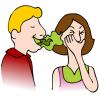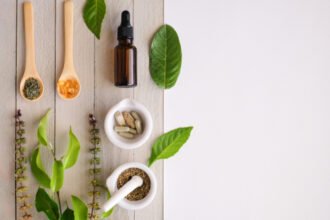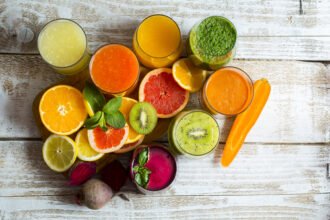

Bad breath is an epidemic. If you disagree, here is an easy experiment to test this hypothesis: next time you are in the check-out line at the grocery store, count the number of breath-enhancing products you can find just by the register. The answer is: A lot. These products are not primarily aimed at the teenage bubble blowing market; they are aimed at the millions of people suffering from, in doctor-speak, halitosis.
According to WebMD, halitosis, or bad breath, can result from poor dental health and may even be linked to even more serious health problems. Bad breath can also worsen through certain types of foods you eat and other unhealthy habits. A lot of people also suffer from another serious side-effect of bad breath: low self-confidence. In order to stop the problem in its tracks, let’s take a look at some of the most common causes of bad breath and some possible cures.
THE MOUTH
It is difficult to start up a conversation if you think your breath could make a skunk squirm, so in order to correct  the problem it is best to first take look at the most common causes and the mouth seems like a good place to start. Poor dental hygiene allows food particles to collect on the tongue, between the teeth, and on the gums. Your body’s bacteria will then take the cue to start breaking down these particles, releasing chemicals that have a strong odor. As your dental assistant will surely tell you, brushing and flossing regularly will cut down on the amount of food particles that remain in the mouth. Having a dry mouth can also lead to food hanging around where it shouldn’t be since saliva is the body’s way of moving particles along, which is why some medications, mouth breathing, and smoking can lead to bad breath.
the problem it is best to first take look at the most common causes and the mouth seems like a good place to start. Poor dental hygiene allows food particles to collect on the tongue, between the teeth, and on the gums. Your body’s bacteria will then take the cue to start breaking down these particles, releasing chemicals that have a strong odor. As your dental assistant will surely tell you, brushing and flossing regularly will cut down on the amount of food particles that remain in the mouth. Having a dry mouth can also lead to food hanging around where it shouldn’t be since saliva is the body’s way of moving particles along, which is why some medications, mouth breathing, and smoking can lead to bad breath.
Halitosis can also be the sign of a more serious health condition. If regular oral care is just not pilfering the pungency it might mean you have an infection, tooth decay, gum disease, or mouth sores. Obviously, if you suspect this might the case, go see your dental professional right away as all of these bad breath causes are curable. But left untreated, they can all lead to even more serious health problems.
DIET
If you brush and floss multiple times per day and you are on a first name basis with your dental assistant, you have nothing to worry about, but if your cat would rather sleep in its litter box than come sit on your lap, then you may want to examine your diet. According to the American Dental Association, certain pungent foods like garlic and onions can spoil your breath. Once food is digested, chemicals that cause odor can be absorbed into the bloodstream and from there into the lungs; these chemicals are then exhaled out through the mouth. High protein diets and eating too much sugar has also been associated with bad breath.
As you can see, these necessary internal digestive processes can make for some pretty nasty external consequences. Hence, knowledge of how your body functions is crucial. Knowing which foods to avoid before your next public appearance can help to add some spring to your step.
OTHER MEDICAL CONDITIONS
Ok, so breath’s still bad? Well never fear, WebMD has a fun list of other potential bad breath bandits, including: respiratory tract infections, chronic sinus infections, postnasal drip, diabetes, acid reflux, and liver or kidney problems. If you suspect it might be one of these conditions, consult your physician immediately.
CURES
After all this, your confidence is still low and on top of that, you are now concerned for your health. Keep in mind, that in most cases, bad breath is not the sign of a more serious condition. There are steps that can be taken to reduce and even eliminate your self-esteem-busting bad breath.
- Brush and floss multiple times per day and do not forget to brush the tongue.
- Replace your toothbrush every two to three months and, if applicable, clean your dentures daily.
- Visit your dentist and dental assistant at least twice per year.
- Kick the smoking habit.
- Stay hydrated by drinking lots of water. Saliva will carry away the halitosis causing food particles. Also, chewing gum can increase saliva production as well as temporarily mask bad breath.
- Keep track of the foods you are eating and medications you are taking and go over them with your doctor and dentist.
A simple adjustment in habits may be all that is needed to get you on the right track to being proud of your breath.
Bad Breath / blis.co.nz









